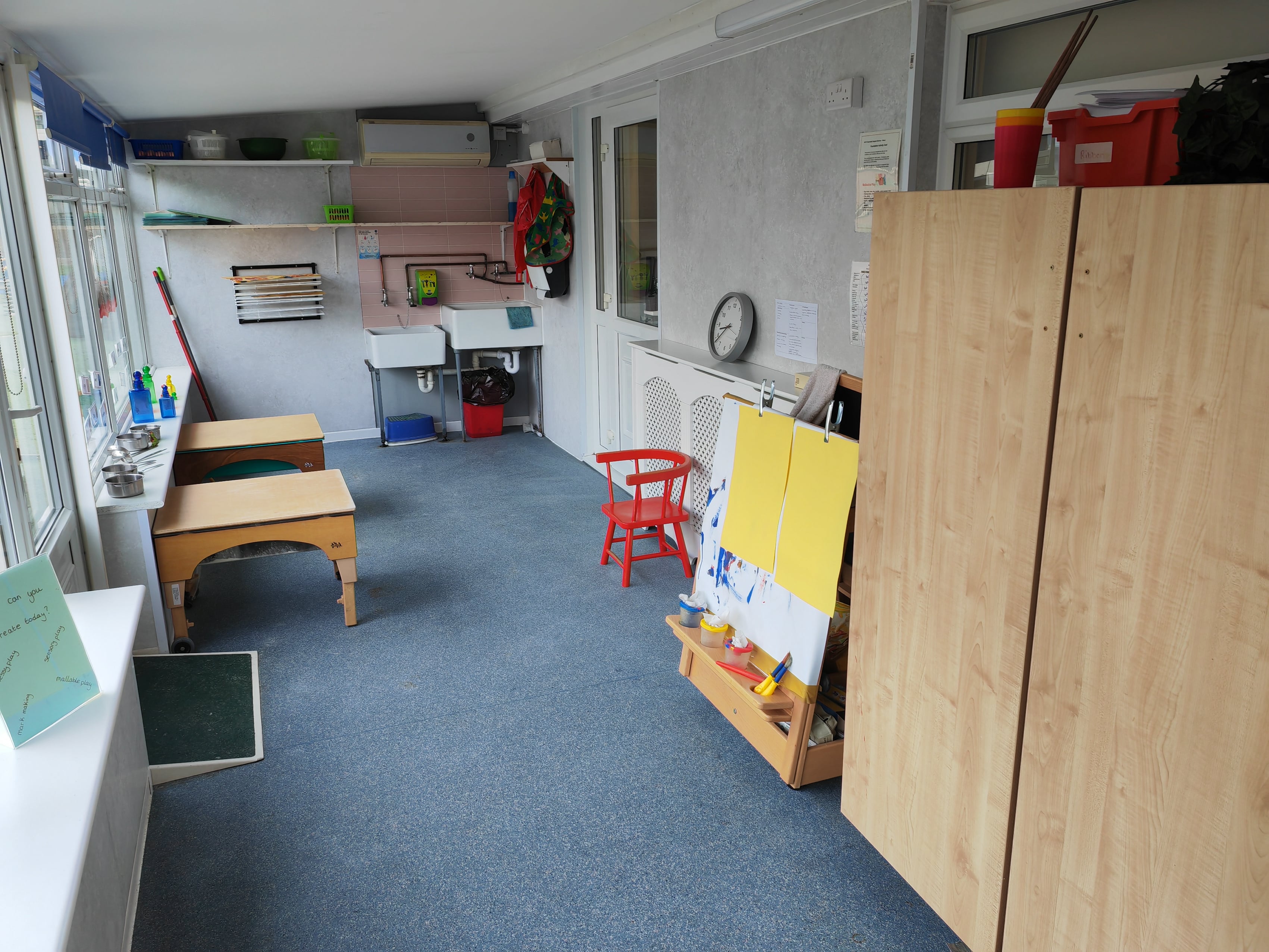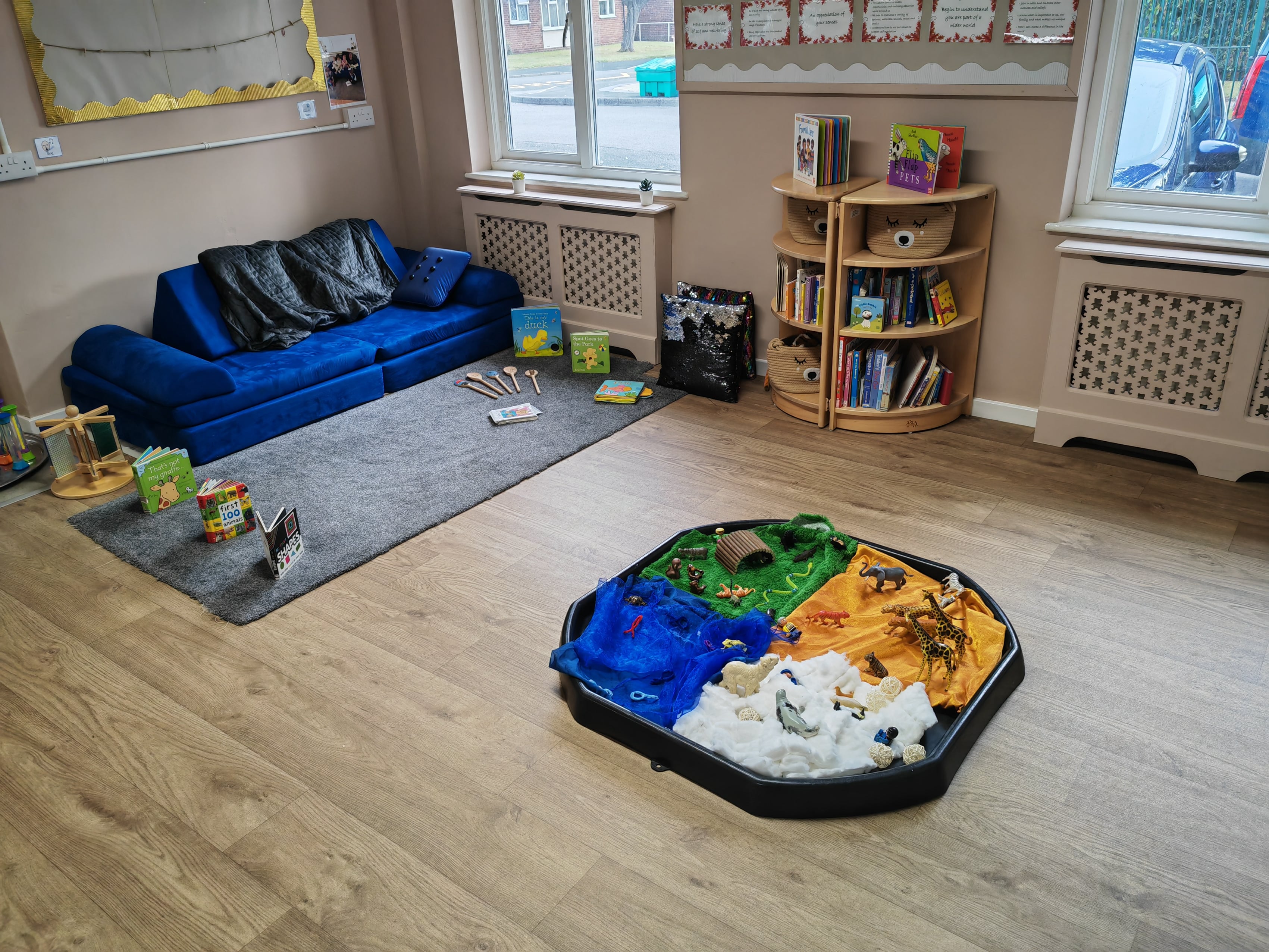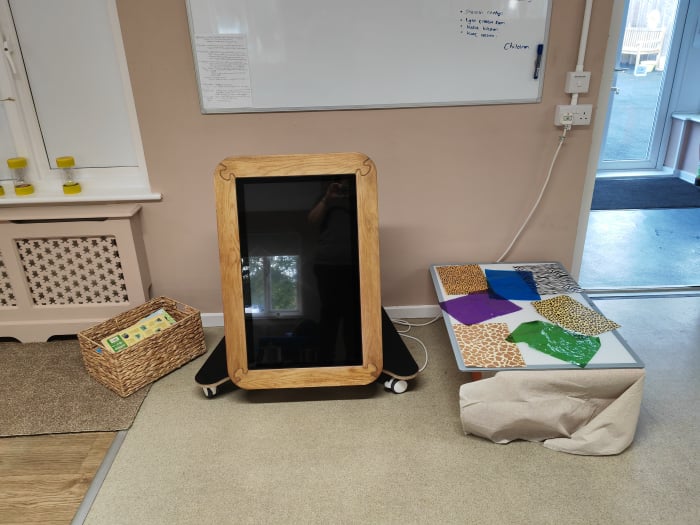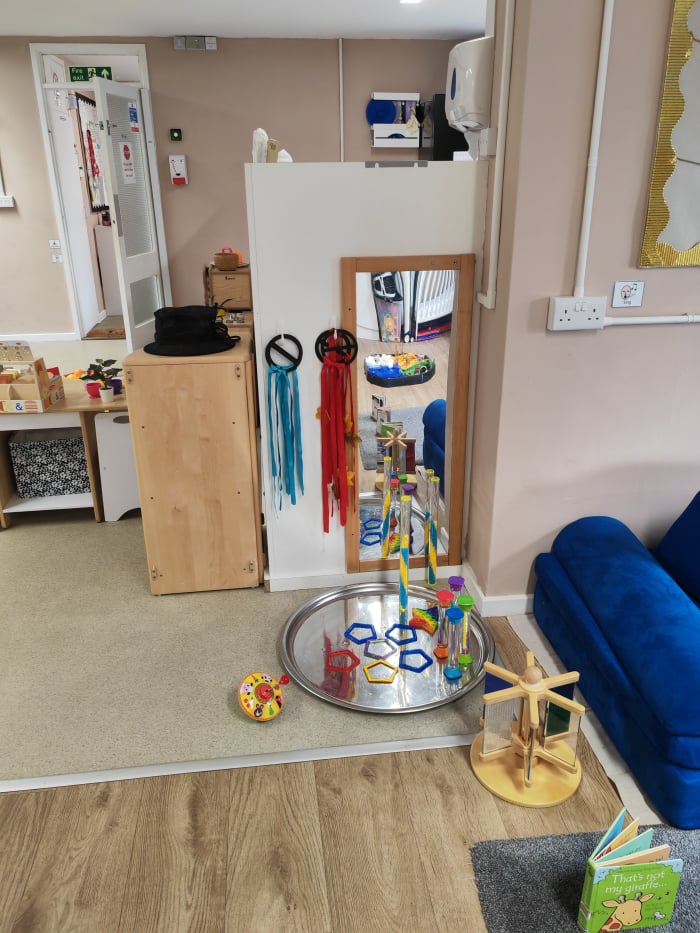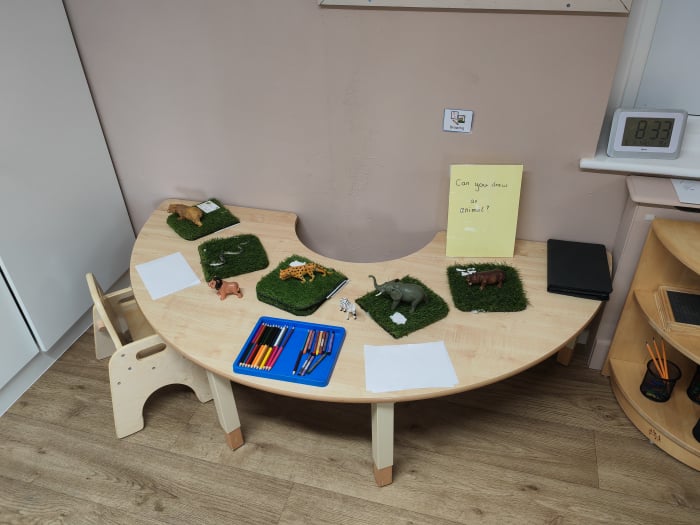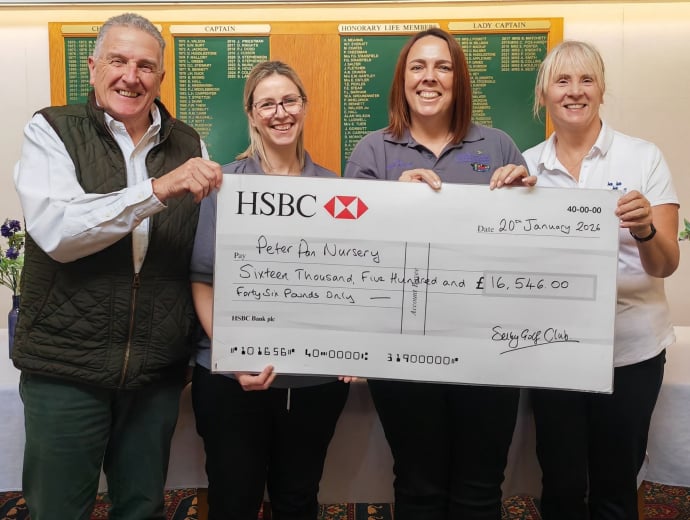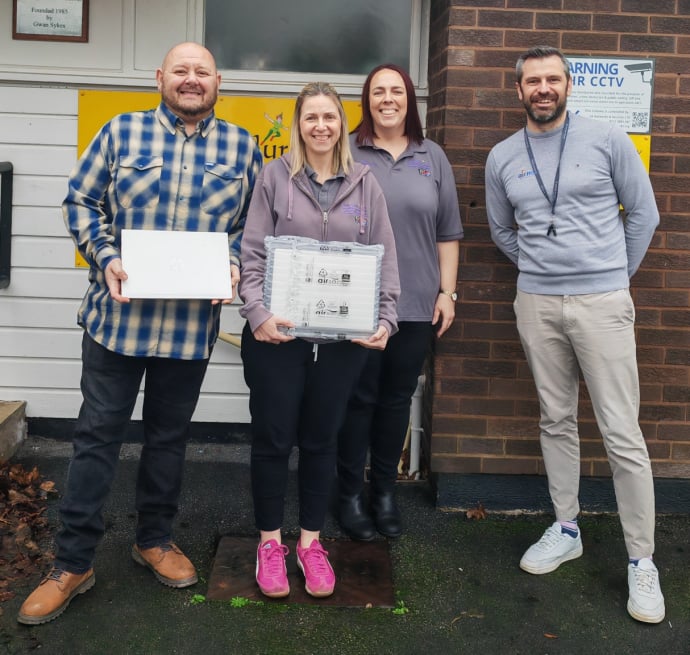The designated person is The Nursery Manager, the back-up designated person is The Deputy Manager, Duty Local Authority Designated Officer (LADO) Tel: 01609 533080
Safeguarding roles
• All staff and volunteers recognise and know how to respond to signs and symptoms that may indicate a child is suffering from or likely to be suffering from harm. They understand that they have a responsibility to act immediately by discussing their concerns with the designated person or a named back-up designated person.
• The Nursery Manager and Deputy Manager are the designated person and back-up designated person, responsible for co-ordinating action taken by the setting to safeguard vulnerable children and adults.
• All concerns about the welfare of children in the setting should be reported to the designated person or the back-up designated person.
• The designated person ensures that all educators are alert to the indicators of abuse and neglect and understand how to identify and respond to these.
• The setting should not operate without an identified designated person at any time.
The designated person informs the designated officer about serious concerns as soon as they arise and agree the action to be taken, seeking further clarification if there are any doubts that the issue is safeguarding.
• If it is not possible to contact the designated officer, action to safeguard the child is taken first and the designated officer is informed later. If the designated officer is unavailable advice is sought from their line manager or equivalent.
• Issues which may require notifying to Ofsted are notified to the designated officer to make a decision regarding notification. The designated person must remain up to date with Ofsted reporting and notification requirements.
• If there is an incident, which may require reporting to RIDDOR the designated officer immediately seeks guidance from the Trustees. There continues to be a requirement that the designated officer follows legislative requirements in relation to reporting to RIDDOR. This is fully addressed in the Health and Safety procedures.
• The setting follows procedures of their Local Safeguarding Partners (LSP) for safeguarding and any specific safeguarding procedures such as responding to radicalisation/extremism concerns. Procedures are followed for managing allegations against staff, as well as for responding to concerns and complaints raised about quality or practice issues, whistle-blowing and escalation.
Responding to marks or injuries observed
• If a member of staff observes or is informed by a parent/carer of a mark or injury to a child that happened at home or elsewhere, the member of staff asks the parent/carer to complete and sign a pre-existing injury form. This is filed in the child’s personal file.
• The member of staff advises the designated person as soon as possible if there are safeguarding concerns about the circumstance of the injury.
• If there are concerns about the circumstances or explanation given, by the parent/carer and/or child, the designated person decides the course of action to be taken after reviewing the Child welfare and protection summary and completing a Safeguarding incident reporting form.
• If the mark or injury is noticed later in the day and the parent is not present, this is raised with the designated person.
• If there are concerns about the nature of the injury, and it is unlikely to have occurred at the setting, the designated person decides the course of action required and a Safeguarding incident reporting form is completed as above, taking into consideration any explanation given by the child.
• If there is a likelihood that the injury is recent and occurred at the setting, this is raised with the designated person.
• If there is no cause for further concern, a record is made on Tapestry and an Accident form is completed, with a note that the circumstances of the injury are not known.
• If the injury is unlikely to have occurred at the setting, this is raised with the designated person
• The parent/carer is advised at the earliest opportunity.
• If the parent believes that the injury was caused at the setting this is still recorded on an Accident form on Tapestry and an accurate record made of the discussion is made on the child’s personal file.
Responding to the signs and symptoms of abuse
• Concerns about the welfare of a child are discussed with the designated person without delay.
• A written record is made of the concern on Safeguarding incident reporting form as soon as possible.
• Concerns that a child is in immediate danger or at risk of significant harm are responded to immediately and if a referral is necessary this is made on the same working day.
Responding to a disclosure by a child
• When responding to a disclosure from a child, the aim is to get just enough information to take appropriate action.
• The educator listens carefully and calmly, allowing the child time to express what they want to say.
• Staff do not attempt to question the child but if they are not sure what the child said, or what they meant, they may prompt the child further by saying ‘tell me more about that’ or ‘show me again’.
• After the initial disclosure, staff speak immediately to the designated person. They do not further question or attempt to interview a child.
• If a child shows visible signs of abuse such as bruising or injury to any part of the body and it is age appropriate to do so, the key person will ask the child how it happened.
• When recording a child’s disclosure on a Safeguarding incident reporting form, their exact words are used as well as the exact words with which the member of staff responded.
• If marks or injuries are observed, these are recorded on a body diagram.
Decision making (all categories of abuse)
• The designated person makes a professional judgement about referring to other agencies, including Social Care using the Local Safeguarding Partnership (LSP) threshold document:
- Level 1: Child’s needs are being met. Universal support.
- Level 2: Universal Plus. Additional professional support is needed to meet child’s needs.
- Level 3: Universal Partnership Plus. Targeted Early Help. Coordinated response needed to address multiple or complex problems.
- Level 4: Specialist/Statutory intervention required. Children in acute need, likely to be experiencing, or at risk of experiencing significant harm.
• Staff are alert to indicators that a family may benefit from early help services and should discuss this with the designated person, also completing a Safeguarding incident reporting form if they have not already done so.
Seeking consent from parents/carers to share information before making a referral for early help (Tier 2/3*)
Parents are made aware of the setting’s Privacy Notice which explains the circumstances under which information about their child will be shared with other agencies. When a referral for early help is necessary, the designated person must always seek consent from the child’s parents to share information with the relevant agency.
• If consent is sought and withheld and there are concerns that a child may become at risk of significant harm without early intervention, there may be sufficient grounds to over-ride a parental decision to withhold consent.
• If a parent withholds consent, this information is included on any referral that is made to the local authority. In these circumstances a parent should still be told that the referral is being made beforehand (unless to do so may place a child at risk of harm).
*Tier 2: Children with additional needs, who may be vulnerable and showing early signs of abuse and/or neglect; their needs are not clear, not known or not being met. Tier 3: Children with complex multiple needs, requiring specialist services in order to achieve or maintain a satisfactory level of health or development or to prevent significant impairment of their health and development and/or who are disabled.
Informing parents when making a child protection referral
In most circumstances consent will not be required to make a child protection referral, because even if consent is refused, there is still a professional duty to act upon concerns and make a referral. When a child protection referral has been made, the designated person contacts the parents (only if agreed with social care) to inform them that a referral has been made, indicating the concerns that have been raised, unless social care advises that the parent should not be contacted until such time as their investigation, or the police investigation, is concluded. Parents are not informed prior to making a referral if:
- there is a possibility that a child may be put at risk of harm by discussion with a parent/carer, or if a serious offence may have been committed, as it is important that any potential police investigation is not jeopardised
- there are potential concerns about sexual abuse, fabricated illness, FGM or forced marriage
- contacting the parent puts another person at risk; situations where one parent may be at risk of harm, e.g. abuse; situations where it has not been possible to contact parents to seek their consent may cause delay to the referral being made
The designated person makes a professional judgment regarding whether consent (from a parent) should be sought before making a child protection referral as described above. They record their decision about informing or not informing parents along with an explanation for this decision. Advice will be sought from the appropriate children’s social work team if there is any doubt. Advice can also be sought from the designated officer.
Referring
• The designated person or back-up follows their LSP procedures for making a referral.
• If the designated person or their back-up is not on site, the most senior member of staff present takes responsibility for making the referral to social care.
• If a child is believed to be in immediate danger, or an incident occurs at the end of the session and staff are concerned about the child going home that day, then the Police and/or social care are contacted immediately.
• If the child is ‘safe’ because they are still in the setting, and there is time to do so, the senior member of staff contacts the setting’s designated officer for support.
• Arrangements for cover (as above) when the designated person and back-up designated person are not on-site are agreed in advance by the setting manager and clearly communicated to all staff.
Further recording
• Information is recorded using 06.1b Safeguarding incident reporting form, and a short summary entered on 06.1a Child welfare and protection summary. Discussion with parents and any further discussion with social care is recorded. If recording a conversation with parents that is significant, regarding the incident or a related issue, parents are asked to sign and date it a record of the conversation. It should be clearly recorded what action was taken, what the outcome was and any follow-up.
• If a referral was made, copies of all documents are kept and stored securely and confidentially (including copies in the child’s safeguarding file.
• Each member of staff/volunteer who has witnessed an incident or disclosure should also make a written statement on a Safeguarding incident reporting form, as above.
• The referral is recorded on a Child welfare and protection summary.
• Follow up phone calls to or from social care are recorded in the child’s file; with date, time, the name of the social care worker and what was said.
• Safeguarding records are kept up to date and made available for confidential access by the designated officer to allow continuity of support during closures or holiday periods.
Reporting a serious child protection incident using a Confidential safeguarding incident report form
• The designated person is responsible for reporting to the designated officer and seeking advice if required prior to making a referral as described above.
• For child protection concerns at Tier 3 and 4** it will be necessary for the designated person to complete a Confidential safeguarding incident report form and send it to the designated officer.
• Further briefings are sent to the designated officer when updates are received until the issue is concluded.
** Tier 3: Children with complex multiple needs, requiring specialist services in order to achieve or maintain a satisfactory level of health or development or to prevent significant impairment of their health and development and/or who are disabled. Tier 4: Children in acute need, who are suffering or are likely to suffer significant harm.
Professional disagreement/escalation process
• If an educator disagrees with a decision made by the designated person not to make a referral to social care they must initially discuss and try to resolve it with them.
• If the disagreement cannot be resolved with the designated person and the educator continues to feel a safeguarding referral is required then they discuss this with the designated officer.
• If issues cannot be resolved the whistle-blowing policy should be used, as set out below.
• Supervision sessions are also used to discuss concerns but this must not delay making safeguarding referrals.
Whistleblowing
The whistle blowing procedure must be followed in the first instance if:
- a criminal offence has been committed, is being committed or is likely to be committed
- a person has failed, is failing or is likely to fail to comply with any legal obligation to which he or she is subject. This includes non-compliance with policies and procedures, breaches of EYFS and/or registration requirements
- a miscarriage of justice has occurred, is occurring or is likely to occur
- the health and safety of any individual has been, is being or is likely to be endangered
- the working environment has been, is being or is likely to be damaged;
- that information tending to show any matter falling within any one of the preceding clauses has been, is being or is likely to be deliberately concealed
There are 3 stages to raising concerns as follows:
1. If staff wish to raise or discuss any issues which might fall into the above categories, they should normally raise this issue with the Nursery Manager/Designated Person.
2. Staff who are unable to raise the issue with the Nursery Manager/Designated Person they should raise the issue with the Designated Officer.
3. If staff are still concerned after the investigation, or the matter is so serious that they cannot discuss it with the Nursery Manager, they should raise the matter with the General Manager. If it is not possible to discuss it with the General Manager, the board of trustees should be contacted. Contact numbers and email addresses are available at all times in the contact folder.
Ultimately, if an issue cannot be resolved and the member of staff believes a child remains at risk because the setting or the local authority have not responded appropriately, the NSPCC have introduced a whistle-blowing helpline 0800 028 0285 for professionals who believe that:
- their own or another employer will cover up the concern
- they will be treated unfairly by their own employer for complaining
- if they have already told their own employer and they have not responded
Female genital mutilation (FGM)
Educators should be alert to symptoms that would indicate that FGM has occurred, or may be about to occur, and take appropriate safeguarding action. Designated persons should contact the police immediately as well as refer to children’s services local authority social work if they believe that FGM may be about to occur.
It is illegal to undertake FGM or to assist anyone to enable them to practice FGM under the Female Genital Mutilation Act 2003, it is an offence for a UK national or permanent UK resident to perform FGM in the UK or overseas. The practice is medically unnecessary and poses serious health risks to girls. FGM is mostly carried out on girls between the ages of 0-15, statistics indicate that in half of countries who practise FGM girls were cut before the age of 5. LSCB guidance must be followed in relation to FGM, and the designated person is informed regarding specific risks relating to the culture and ethnicity of children who may be attending their setting and shares this knowledge with staff.
Symptoms of FGM in very young girls may include difficulty walking, sitting or standing; painful urination and/or urinary tract infection; urinary retention; evidence of surgery; changes to nappy changing or toileting routines; injury to adjacent tissues; spends longer than normal in the bathroom or toilet; unusual and /or changed behaviour after an absence from the setting (including increased anxiety around adults or unwillingness to talk about home experiences or family holidays); parents are reluctant to allow child to undergo normal medical examinations; if an older sibling has undergone the procedure a younger sibling may be at risk; discussion about plans for an extended family holiday
Further guidance
NSPCC 24-hour FGM helpline: 0800 028 3550 or email [email protected]
Government help and advice: www.gov.uk/female-genital-mutilation
Children and young people vulnerable to extremism or radicalisation
Early years settings, schools and local authorities have a duty to identify and respond appropriately to concerns of any child or adult at risk of being drawn into terrorism. LSP’s have procedures which cover how professionals should respond to concerns that children or young people may be at risk of being influenced by or being made vulnerable by the risks of extremism.
There are potential safeguarding implications for children and young people who have close or extended family or friendship networks linked to involvement in extremism or terrorism.
• The designated person is required to familiarise themselves with LSP procedures, as well as online guidance including:
- Channel Duty guidance: Protecting people vulnerable to being drawn into terrorism www.gov.uk/government/publications/channel-and-prevent-multi-agency-panel-pmap-guidance
- Prevent Strategy (HMG 2011) www.gov.uk/government/publications/prevent-strategy-2011
• The prevent duty: for schools and childcare providers www.gov.uk/government/publications/protecting-children-from-radicalisation-the-prevent-duty
• The designated person should follow LSP guidance in relation to how to respond to concerns regarding extremism and ensure that staff know how to identify and raise any concerns in relation to this with them.
• The designated person must know how to refer concerns about risks of extremism/radicalisation to their LSP safeguarding team or the Channel panel, as appropriate.
• The designated person should also ensure that they and all other staff working with children and young people understand how to recognise that someone may be at risk of violent extremism.
• The designated person also ensures that all staff complete The Prevent Duty in an Early Years Environment and Understanding Children’s Rights and Equality and Inclusion in Early Years Settings online EduCare courses.
• If available in the area, the designated person should complete WRAP (or equivalent) training and support staff to access the training as offered by local authorities. WRAP training covers local arrangements for dealing with concerns that a child may be at risk of extremism and/or radicalisation.
• The designated person should understand the perceived terrorism risks in relation to the area that they deliver services in.
Parental consent for radicalisation referrals
LSP procedures are followed in relation to whether parental consent is necessary prior to making a referral about a concern that a child or adult may be at risk of being drawn into terrorism. It is good practice to seek the consent of the person, or for very young children, the consent of their parent/carer prior to making a referral, but it is not a requirement to seek consent before referring a concern regarding possible involvement in extremism or terrorism if it may put a child at risk, or if an offence may have been or may be committed. Advice should be sought from line managers and local agencies responsible for safeguarding, as to whether or not consent should be sought on a case-by-case basis. Designated persons should be mindful that discussion regarding potential referral due to concerns may be upsetting for the subject of the referral and their family. Initial advice regarding whether an incident meets a threshold for referral can be sought from the relevant local agency without specific details such as names of the family being given in certain circumstances.
Consent is required prior to any individual engaging with a Channel intervention. Consent is usually sought by Channel partners, but LSP procedures should be followed regarding this.
If there is a concern that a person is already involved in terrorist activity this must be reported to the Anti-Terrorist Hot Line 0800 789 321-Text/phone 0800 0324 539. Police can be contacted on 101.
Concerns about children affected by gang activity/serious youth violence
Educators should be aware that children can be put at risk by gang activity, both through participation in and as victims of gang violence. Whilst very young children will be very unlikely to become involved in gang activity they may potentially be put at risk by the involvement of others in their household in gangs, such as an adult sibling or a parent/carer. Designated persons should be familiar with their LSP guidance and procedures in relation to safeguarding children affected by gang activity and ensure this is followed where relevant.
Forced marriage/Honour based violence
Forced marriage is a marriage in which one or both spouses do not consent to the marriage but are forced into it. Duress can include physical, psychological, financial, sexual and emotional pressure. In the cases of some vulnerable adults who lack the capacity to consent coercion is not required for a marriage to be forced. A forced marriage is distinct from an arranged marriage. An arranged marriage may have family involvement in arranging the marriages, but crucially the choice of whether to accept the arrangement remains with the prospective spouses.
Forced marriage became criminalised in 2014. There are also civil powers for example a Forced Marriage Protection Order to protect both children and adults at risk of forced marriage and offers protection for those who have already been forced into marriage.
Risks in relation to forced marriage are high and it is important that educators ensure that anyone at risk of forced marriage is not put in further danger. If someone is believed to be at risk it is helpful to get as much practical information as possible, bearing in mind the need for absolute discretion, information that can be helpful will include things likes, names, addresses, passport numbers, national insurance numbers, details of travel arrangements, dates and location of any proposed wedding, names and dates of birth of prospective spouses, details of where and with whom they may be staying etc. Forced marriage can be linked to honour-based violence, which includes assault, imprisonment and murder. Honour based violence can be used to punish an individual for undermining what the family or community believes to be the correct code of behaviour.
In an emergency police should be contacted on 999.
Forced Marriage Unit can be contacted either by professionals or by potential victims seeking advice in relation to their concerns. The contact details are below.
• Telephone: +44 (0) 20 7008 0151
• Email: [email protected]
• Email for outreach work: [email protected]
Further guidance
Accident Record (Early Years Alliance 2019)
Multi-agency practice guidelines: Handling cases of Forced Marriage (HMG 2014) https://assets.publishing.service.gov.uk/government/uploads/system/uploads/attachment_data/file/322307/HMG_MULTI_AGENCY_PRACTICE_GUIDELINES_v1_180614_FINAL.pdf




